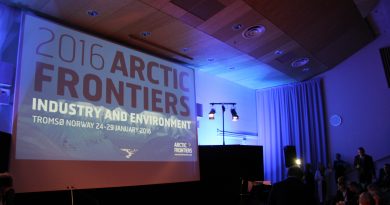Russia denies any role in possible sabotage of pipelines in Baltic Sea

The European Union suspects that damage to two underwater natural gas pipelines was sabotage and is warning of retaliation for any attack on Europe’s energy networks, EU foreign policy chief Josep Borrell said Wednesday.
“All available information indicates those leaks are the result of a deliberate act,” Borrell said in a statement on behalf of the 27 EU member countries. “Any deliberate disruption of European energy infrastructure is utterly unacceptable and will be met with a robust and united response.”
Seismologists reported Tuesday that explosions rattled the Baltic Sea before unusual leaks were discovered on two underwater natural gas pipelines running from Russia to Germany.
The episode underscored the vulnerability of Europe’s energy infrastructure and further heightened tensions on the continent, which has been rocked by the seven-month war in Ukraine. Several EU countries have capped rising energy prices for businesses and consumers ahead of the winter months.
Some European leaders and experts pointed to possible sabotage given the energy standoff with Russia provoked by the war in Ukraine. The three leaks were reported on the Nord Stream 1 and 2 pipelines, which are filled with natural gas but are not delivering the fuel to Europe.
The damage means that the pipelines are unlikely to be able to carry any gas to Europe this winter even if the political will to bring them online emerged, according to analysts.
Kremlin spokesman Dmitry Peskov said allegations that Russia could be behind the incidents were “predictable and stupid.” He told reporters in a conference call that the damage has caused Russia huge economic losses.
Culpability could be hard to prove: analyst
German Defence Minister Christine Lambrecht said “the circumstances surrounding this disturbing event must now be quickly clarified and those responsible identified.” Borrell said the EU will support any investigation into the damage, and will “increase our resilience in energy security.”
Anders Puck Nielsen, a researcher with the Center for Maritime Operations at the Royal Danish Defence College, said that it would be hard to establish who is responsible and just as tough to prevent similar incidents.
“We have pipelines, we have communication cables like the internet. We have power lines running on the seabed. All of this is vulnerable and our societies are very dependent on it. And it’s very, very difficult to monitor what’s going on and to prevent a case of sabotage,” he told The Associated Press.
Danish Prime Minister Mette Frederiksen has said that “it is the authorities’ clear assessment that these are deliberate actions — not accidents.”
But she said “there is no information indicating who could be behind it.” Frederiksen rejected the suggestion that the incident was an attack on Denmark, saying the leaks occurred in international waters.
Denmark’s defence minister, Morten Bodskov, was meeting Wednesday with NATO Secretary General Jens Stoltenberg to discuss the incidents.
The extent of the damage to the pipelines, along with the political ramifications, raises serious doubts about the future of the Nord Stream projects. The U.S. and many of European partners heavily criticized Germany for the project, saying it only increased Europe’s reliance on Russian gas imports.
Related stories from around the North:
Canada: NATO chief tours Arctic defences as Canada comes under pressure, CBC News
Finland: Finland says traffic ‘intensifying’ on border with Russia, The Independent Barents Observer
Norway: Norway formally scraps Russia visa deal, The Independent Barents Observer
Russia: Nord Stream pipeline damages in Baltic Sea raises suspicion of sabotage, The Associated Press



